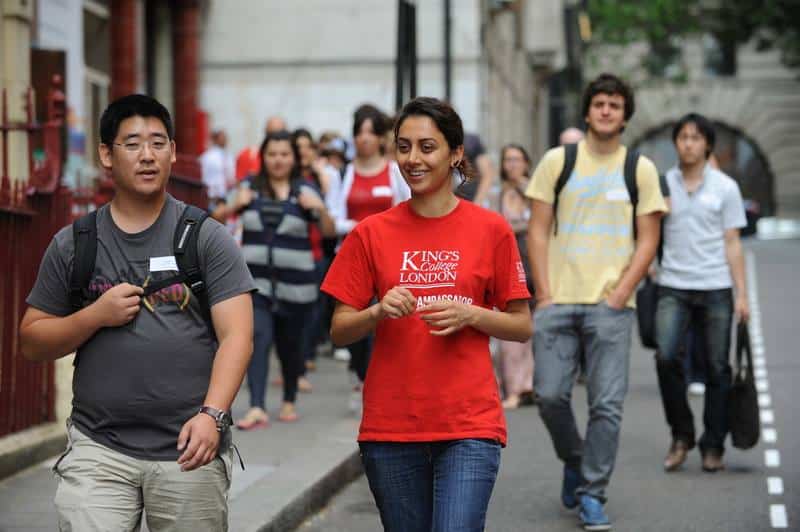
In an increasingly globalised world, there’s never been a better time to understand the languages around us. After all, they are a cornerstone of human communication. Languages shape our interactions, influence our understanding of the world and allow us to convey our thoughts and emotions. More profoundly, it is in how we express ourselves through words that our humanity shines.
There are just as many practical benefits in mastering languages. Employers look favourably at bilingualism and multilingualism as it is proof of good communication skills. It also opens such employees up to high-skilled jobs in multiple countries — which can lead to better earnings.
The advantages of studying languages extend to personal lives too. Brain scans of bilingual and monolingual individuals show more grey matter in the portions of the brain involved in executive functioning. This boosts their decision-making, motivation, and emotional regulation. In schools, bilingual students have been found to multitask and perform in maths and reading better as well, according to other research.
The best languages and linguistics degrees ensure its students make the most of these advantages, giving them an upper hand as they carve out a career in this field and beyond. Discover a selection of universities with such offerings below:
The University of Melbourne

The School of Languages and Linguistics combines the best practices in learning languages at all levels with leading research. Source: The University of Melbourne
The University of Melbourne, Australia’s number 1 university (QS World University Rankings 2024), shapes graduates into well-rounded, thoughtful, and skilled professionals who positively impact the world. The School of Languages and Linguistics (SOLL) is home to the university’s European languages, linguistics and applied linguistics programs and researchers. Language teaching at the University of Melbourne is highly regarded and ranked #1 for Modern Languages and Linguistics in Australia (QS World University Rankings 2023).
One of the most popular degrees in Victoria, the Bachelor of Arts teaches interdisciplinary knowledge, community leadership and cultural awareness. Bachelor of Arts students have over 42 majors and minors to choose from, including 12 languages.
At the graduate level, the Master of Applied Linguistics attracts students from all over the world to further hone their skills in English Language teaching and assessment.
The two-year program builds on students’ existing knowledge, introduces a research component and offers specialisation in three areas: Teaching English to Speakers of Other Languages (TESOL), language testing, and English language.
In addition to SOLL’s strength in second language teaching and English language testing, the school also has expertise in language program design and evaluation, which is invaluable for professionals teaching English academic subjects overseas.
Graduates of the Bachelor of Arts and the Master of Applied Linguistics enjoy strong graduate outcomes and have gone on to work in a wide range of careers and sectors both in Australia and internationally. To learn more about studying languages and linguistics at the University of Melbourne, click here.
University of California, Berkeley

UC Berkeley is home to an excellent Linguistics Department renowned for its study of language and other diverse subfields. Source: UC Berkeley/Facebook
University of California, Berkeley (UC Berkeley) needs no introduction for its academic and research excellence — especially after being named the number one public university by US News and World Report.
The university is home to an excellent Linguistics Department renowned for its study of language and other diverse subfields. With a long-standing reputation and a commitment to groundbreaking research, the department provides an enriching environment for students interested in linguistics.
The department’s faculty boasts scholars and researchers who are leaders in their respective fields. Curricula are comprehensive, covering foundational and advanced linguistics topics. Students have the opportunity to study various aspects of language, engaging with theoretical frameworks and analytical methods. The curriculum encourages critical thinking, data analysis, and problem-solving skills, equipping students with a solid foundation in linguistic theory and methodology.
Here, students have ample opportunities to engage in independent research projects or collaborate with faculty members while also participating in fieldwork. Students benefit from access to a wide range of resources, including well-equipped laboratories, language archives, and computational tools, facilitating their research endeavours.
Seminars and workshops further foster a vibrant intellectual community. They bring together students, faculty, and distinguished guest speakers, creating a dynamic intellectual exchange and collaboration platform.
National University of Singapore

The Department of English, Linguistics and Theatre Studies at National University of Singapore is one of the oldest departments in the university. Source: National University of Singapore/Facebook
As Singapore’s flagship university and one of Asia’s best, the National University of Singapore (NUS) offers a global approach to education, research and entrepreneurship, with a focus on Asian perspectives and expertise.
The Department of English, Linguistics and Theatre Studies is a leading academic department dedicated to studying English language and linguistics, English literature, as well as theatre and performance studies. With a rich history and a commitment to excellence, it offers a vibrant learning environment for students interested in exploring the diverse field of linguistics.
At the heart of this department is its distinguished faculty, renowned scholars and researchers at the forefront of linguistic inquiry. Dr. Nala Lee, for example, is passionate about the topic of language endangerment. The NUS alumna and Assistant Professor of Linguistics is Peranakan Chinese by birth, and her heritage language is Baba Malay, which has been critically endangered since the 1980s.
The English Language and Linguistics programme engages in the formal study of language structures and the qualitative study of language in its social context. Students gain familiarity with the questions and methodologies of both areas — learning about language, the most distinctive human activities, and how to understand it.
For graduate students, the department offers rigorous master’s and PhD programmes, equipping them with advanced training and research skills to pursue careers in academia, research, or industry.
King’s College London

King’s College London has been a pioneer in the field of languages, literatures and cultures since its foundation almost two hundred years ago. Source: King’s College London/Facebook
With over 27,600 students from 150 countries, King’s College London is one of the most culturally diverse higher education providers in the world. Among its many exceptional departments, the Department of Languages, Literatures and Cultures shines as a vibrant and dynamic hub of linguistic inquiry and exploration.
It has been a pioneer in the field of languages, literature and cultures. Students here have opportunities to explore comparative literature, medieval studies, modern languages, and many more. This applied focus equips students with practical skills and prepares them for careers in language education and related fields.
Faculty members actively contribute to groundbreaking research and are at the forefront of linguistic inquiry, providing students with an exceptional learning experience. They engage with and work on areas beyond Europe, including the wider Iberian world, Lusophone Africa and Brazil, the transnational cultures of Germany, and many more.
Students also benefit from the research-led teaching at King’s College London. Those studying the Medieval Studies MA, for example, join seminars and conferences where they are encouraged to participate and contribute papers. They learn from one of the largest concentrations of medievalists in the UK, including the only specialist professor in the UK in Palaeography and Manuscript Studies.
*Some of the institutions featured in this article are commercial partners of Study International







